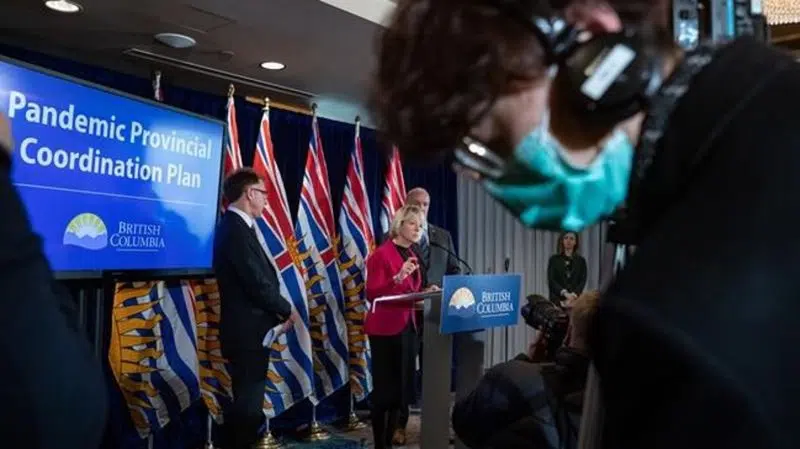
B.C. activates pandemic plan, ready to escalate if needed for COVID-19
VANCOUVER — British Columbia has activated a pandemic co-ordination plan to respond to the COVID-19 outbreak that has sickened 21 people in the province and is prepared to escalate the plan if needed.
Premier John Horgan said Friday he’s appointed a deputy ministers committee to oversee his government’s response and it will report to a cabinet committee co-chaired by him and Health Minister Adrian Dix.
Phase one of the pandemic plan is underway and focuses on identifying and containing the disease through strong testing, border surveillance and isolating people who test positive, the government said.
It said phase two would accelerate the government’s co-ordination to quickly direct actions and resources and prepare for the use of emergency powers if they become necessary.


